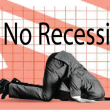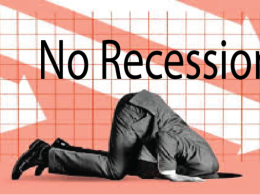Yesterday, we discussed the hype about the imminent death of the US dollar that is bubbling up these days, that is sending the Canadian dollar to parity, stocks and gold to new highs, and lifting commodity prices in general. In his FT.com column, Martin Wolf contends that it is the success of American economic policy that is sinking the dollar, and on the subject of China says:
Relevant policy is made by the Federal Reserve, which has no mandate to preserve the dollar's external value. The only way China's policymakers can preserve the domestic value of external holdings is to support the dollar without limit, which compromises China's domestic monetary stability and will prove self-defeating in the end.
Wolf's thesis is that the zeroing out of interest rates and re-liquidification of the US economy in the face of the credit crisis has crowded investors, both domestic and foreign, out of money market instruments and short term treasuries, into risk assets for yield or growth. It is the crowding out that has proven to be a success for the market and, as consequence, the devaluation of the greenback.
This presents short-term problems for China and its export recovery, but it is not yet time for China to deal with the advent of divorce from the US dollar as a reserve currency.
Mark Gimien, says China is not about to stop propping up the dollar, because in the meantime, the value of the RMB is rising, making its exports more expensive.
The dollar-renminbi trade is a perfect case study in being careful what you wish for. Though American exporters complain about an undervalued renminbi, China's currency management turns out to have some enormous advantages for the American economy. China's voracious demand for dollars—and the Treasury bonds to sink those dollars into—is a key reason why the U.S. government can borrow cheaply and keep U.S. interest rates low.
...
For a while now, economists have wondered when China will tire of lending cheaply to the U.S. government. The longer the process continues, the more China stands to lose over the long run; China is effectively propping up the dollar, and, thanks to its enormous holdings of Treasury bonds, gets left holding the proverbial bag when the dollar falls in value—as it already has in relation to the euro. Eventually, the thinking among economists goes, China will tire of getting rock-bottom interest on U.S. Treasuries while watching the value of its dollar-hoard shrink. This is why people like Ferguson and New York University economist Nouriel Roubini—one of the more prescient (and pessimistic) observers of the meltdown—are predicting an economic divorce between the two massive trading partners.
Advertisement
So should we be worried? In the long run, yes—but we probably won't see a massive and sudden catastrophe. China does want to disentangle itself from its reliance on the dollar. To do that, though, it also has to decrease its reliance on exports to the United States. That won't happen overnight. As bad as the financial meltdown has been for the United States, it has been even worse for much of the rest of the world. The United States is the world's consumer of last (and, well, first, too) resort, so the irony of American economic problems is that, as an oft-repeated adage has it, a U.S. sneeze tends to cause pneumonia in its trade partners.
One of the key economic memes of the past years has been the emergence of a robust Chinese consumer middle class. It is absolutely true that China's middle class and its domestic consumption have both grown dramatically. Even in this economic climate, Chinese retail sales are up by double digit percentages. China remains, however, an export-led economy.
Another question to ponder from the domestic China perspective is one of confidence. How confident would the Chinese be in their own currency if it were not pegged to the US dollar?
When you cut through all of the noise surrounding the fate of the dollar, and look at the economic probabilities, the conclusion you can make is that China and the world for that matter have got far more incentive at the hinge of our economic crisis to do their respective parts to defend balance, not as a favour or whim, but as a matter of economic continuity. China's best move is a smoother and longer term transition to independence from its symbiotic co-existence with the US dollar economy.
A US/China divorce is many years away, a long term proposition at worst. The more important issues in the present still rest on how monetary authorities will rebalance currency valuations, and that ultimately will slow or reverse the flow of liquidity out of the dollar. A reversal in the dollar's decline would be negative for equity markets and other risk assets in the short term.











